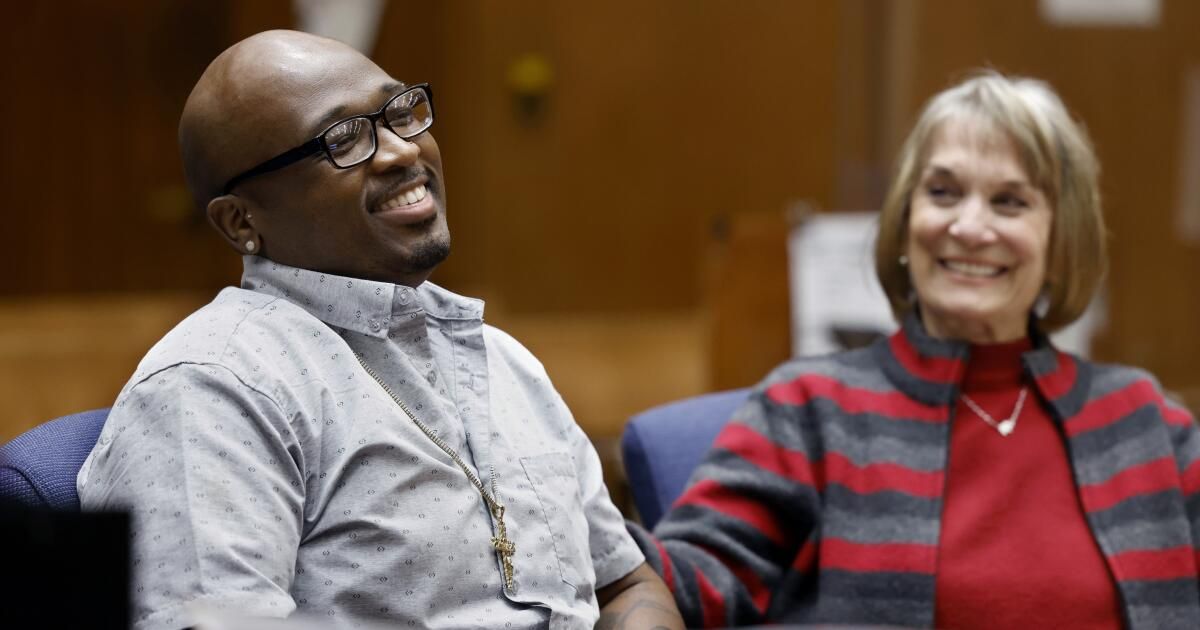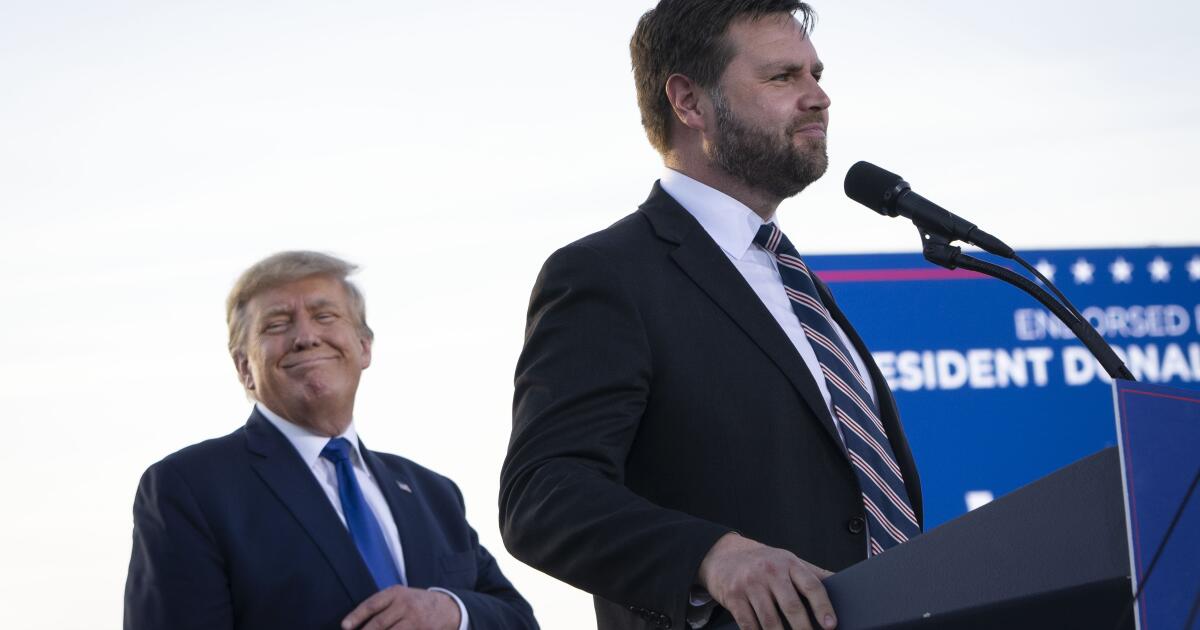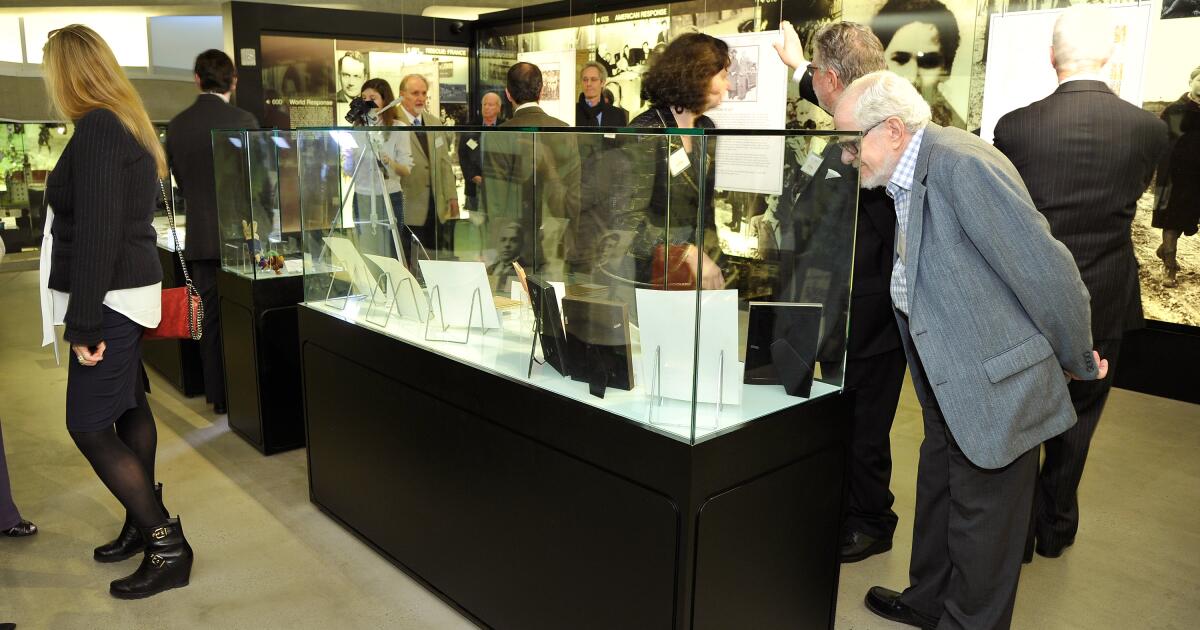A day after being acquitted of a crime for which he served 20 years in prison but did not commit, Jofama Coleman was asked Wednesday how he felt about the legal system that prosecuted, convicted, sentenced and imprisoned him.
Coleman considered the question for a moment as he stood next to co-defendant Abel Soto, who was exonerated in January after also spending two decades in prison. With them was his attorney, Ellen Eggers, and Dist. Attorney. George Gascón, whose office has acquitted 10 people who were wrongfully convicted and imprisoned.
Coleman said he was resentful at first. But then an alleged witness who testified against him acknowledged that he never actually saw Coleman behind the wheel of a white pickup truck used in the fatal shooting of 16-year-old José “Chino” Robles on May 10, 2003. Testimony that Soto fired the The fatal shots were also rejected.
“It wasn't until one of these individuals grew up and developed a conscience, or whatever, and actually told the truth,” Coleman said, that he was able to begin to make peace with what happened.
Robles was one of thousands of victims of the cruel Los Angeles street gang war of the 1990s and early 2000s. Coleman and Soto were also victims, not of murderers, but of sloppy but serious police work and prosecution. , and from the tunnel vision of Los Angeles officials who were so inflexible in fighting crime that they punished the wrong people. Very few, like Coleman and Soto, have achieved their release. Many are likely to remain unjustly imprisoned.
How did it happen? It is possible that some police officers were corrupt. Los Angeles Police Department Officer Rafael Perez comes to mind, along with others who planted evidence and framed suspects in what became known as the Rampart scandal. It is possible that some prosecutors knew they were trying innocent people. But the vast majority certainly believed they were working hard to bring the killers to justice and bring peace to the victims' loved ones. They felt enormous pressure from elected officials, who felt enormous pressure from voters and constituents to stop the killing. In their zeal, they may have taken shortcuts or succumbed to prejudice about people they were convinced (incorrectly) were guilty.
Franky Carrillo Jr. was tried, convicted, and imprisoned under remarkably similar circumstances to those of Coleman and Soto. Witnesses testified that they saw Carrillo fire the murder weapon in a fatal accident in 1991. Investigators encouraged them to do so, despite their misgivings, about the misuse of identification photographs in books and so-called six-packs. Almost two decades later, they recanted.
Eggers, the same defense attorney who helped get Coleman and Soto acquitted, worked with the Northern California Innocence Project to secure Carrillo's release and exoneration in 2011. Carrillo is now a county probation commissioner and a candidate for Assembly in Tuesday's elections.
“The Innocence Files,” a 2020 Netflix documentary series, examined Carrillo’s harrowing journey. The sheriff's deputies, prosecutors and supposed witnesses, who at first were portrayed as heroes, later appear to be villains. Of them, a few (those who recognized their mistakes and the damage they caused, and worked to repair it) became heroes again.
Our society is somewhere on that same path. We overbuilt our prison system and then overfilled it, too often carelessly. We were unable to address the scourge of violence with more constructive investments to deter crime. We continue to allow law enforcement to use unreliable techniques and technologies to solve crimes. Too often we respond to increases in crime—mere irregularities compared to the violence of three and four decades ago—by rolling back hard-won criminal justice reforms.
It is time for our society to do what Coleman said the false witness against him ultimately did: grow and develop a conscience. That means supporting crime-hit communities with better education, employment opportunities, health care and even street lighting, not just police and prisons. It means atoning for the mistakes of the past by insisting that every county, every state, the federal government, strengthen their sentencing integrity and habeas corpus operations, as Gascón has done, to bring home innocent victims of overzealous prosecutions.
“There is a significant danger in convicting the wrong person,” Gascón said Wednesday. There is the unimaginable loss suffered by people unjustly locked up and the families who had to live without them, the stain on a justice system we tout as the best in the world, and the false justice provided to victims of crime.
Gascón's last point should catch the attention of all tough-on-crime supporters:
“It also leaves the real perpetrators free to inflict further harm on the community.”












